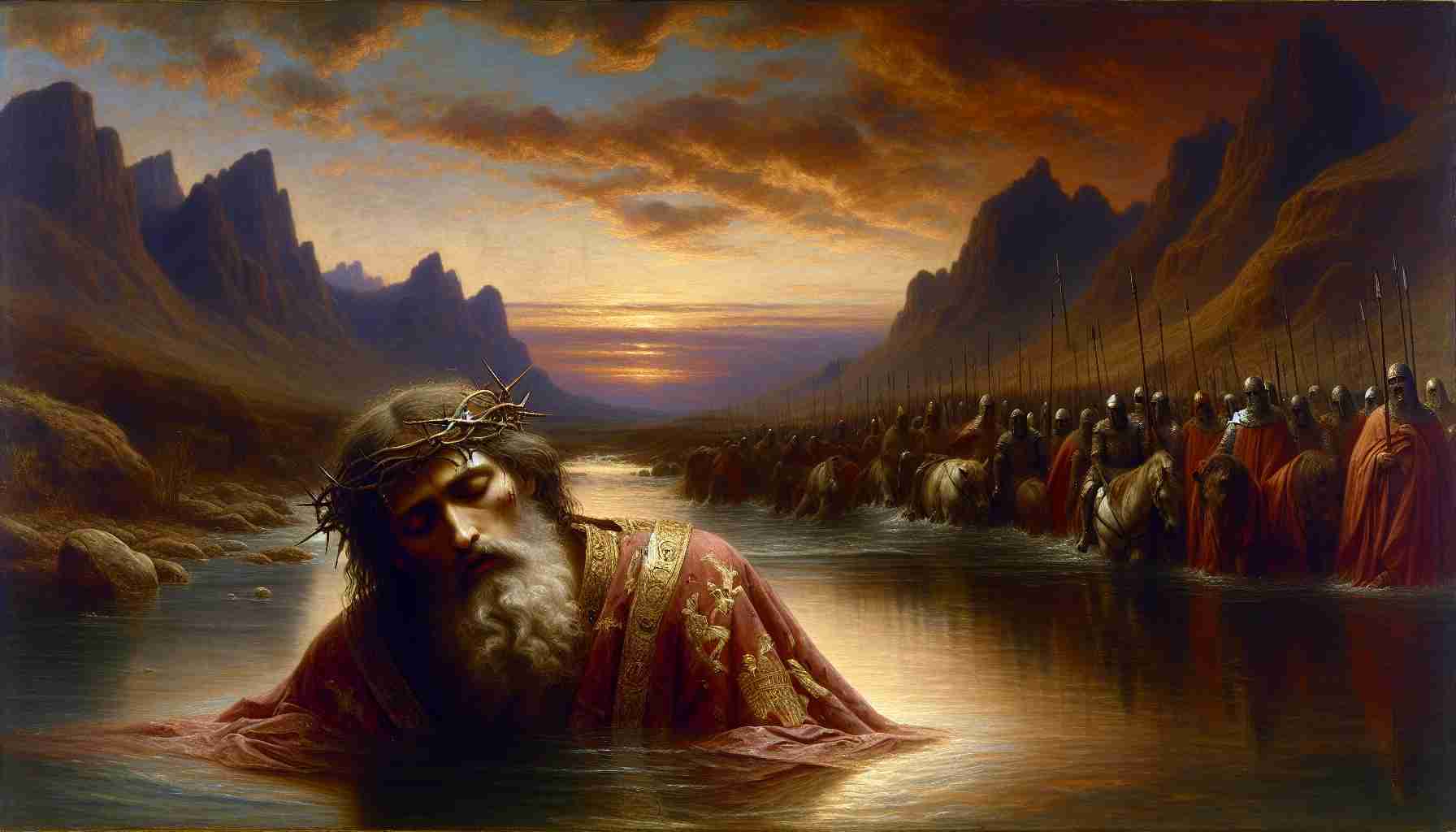

The morning sun strained through a haze of smoke and dust above the Taurus Mountains, casting pale light over the winding valley where the army of the Holy Roman Empire pressed onward. Steel clinked against steel, hooves thudded hardened soil, and the standards of the Cross snapped high in the breeze. June’s heat lay heavy across Cilicia, and sweat marked the brows of thousands, but none moved with greater resolve than the Emperor himself—Frederick Barbarossa, iron-hearted and white-bearded, marching beneath the sign of the crucified Christ.
He was seventy. A man of flame and granite, whispered to possess the strength of younger kings and the faith of older saints. His missions had built cathedrals and crushed rebellions, but none matched the cause that now summoned him eastward—to Jerusalem, the city of David and Golgotha. Since Pope Urban called the Crusade, Frederick had borne the cross not only on his surcoat but—as his closest knights believed—etched into his soul.
Ahead, the River Saleph slithered across the dry Anatolian plain, a glistening thread of promise. After days of forced marches under hostile skies, the soldiers’ parched throats longed for its waters. It had rained the night before. The river ran swift and full, swollen from the mountain mists—a different creature than the calm flow shown on their maps.
The Emperor rode out alone toward its bank, his horse pawing nervously at the rising current. Behind him, the army dismounted in ranks beneath the pine-covered slopes. He had not waited.
“God has laid the way forward,” Frederick once told his chaplain. “If I die, I die in service to Christ. 'To live is Christ, and to die is gain.'” His advisors had warned him not to cross. The bridge was out, the waters dangerous. But the Emperor was not a man to bend before timidity. He urged his steed forward.
The horse reared beneath the pressure, slipping on the wet stones of the riverbed. A cry echoed over the valley. Warrior and rider sank beneath the racing torrent, scarlet cloak dragging like a banner into the depths. Shouts erupted. No one reached him in time.
They found him downstream, tangled in river reeds and silence.
When word passed through the Crusader camp, silence fell like a sword. The soldiers stood unmoving in grief, many dropping to their knees. This man, who had parted crowns and shattered walls, now lay limp by the very river they had hoped would quench their thirst. As if the Lord Himself had marked a pause in the campaign.
There were arguments—his German knights wanted to press on, but despair had taken root. Some demanded to turn back, believing the death of the Emperor was a curse, a divine refusal of their cause. The Crusade faltered. Many disbanded before reaching Antioch.
The local bishop, a Greek priest long hardened to the decay of eastern wars, oversaw the burial. “He is not lost,” the priest murmured as prayers rose over the temporary tomb. “Not if he rode for the Truth.”
They buried Frederick in three parts—a strange, fragmented interment, born of desperation and logistics. His flesh boiled in vinegar to preserve his bones. His heart and entrails laid to rest in Tarsus, his flesh in Antioch, and his bones, it is claimed, were meant for Jerusalem—but disappeared along the way, either lost or interred in hidden sands.
But the story did not fade.
In distant cathedrals, monks painted the emperor as a martyr of the Cross. Some claimed dreams of him kneeling before Christ's throne, armored still. Others whispered that he lived on, enchanted in a cave, slumbering until Germany’s greatest hour of need. Pilgrims journeyed to Saleph’s banks for generations, kneeling where his horse stumbled, asking for courage.
No grave marked the place. No stone bore his name.
Only the sky, the rush of eternal waters, and the memory of a man who’d believed his death was gain, though his quest was not fulfilled.
And so the river kept moving. As the centuries passed, its name changed—Saleph became the Göksu. But the ripples of June 10, 1190 did not fade. For a king had entered its depths not as a man grasping power, but as one surrendering it.
The world remembers those who conquer kingdoms.
He had set forth to reclaim the city where Christ had died and risen—their Savior who, too, had marched toward death for a cause no army could preserve. On that stony bank, beneath mountain sky and Turkish soil, the Emperor joined Him—not in triumph, but in faith.